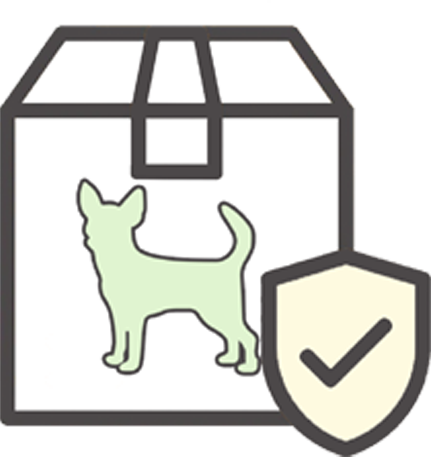Daily Vitamins Dogs Need
Updated On: Friday, November 15, 2024 11:20:29 AM America/Los_Angeles
Like any living creature, canines require specific nutrients to maintain well-balanced bodily systems. Of these nutrients, vitamins are especially key for proper daily functioning. Think of vitamins as the building blocks of good health that work holistically to help pups stay healthy and happy.
Photo by Jamie Street
What Kind of Vitamins Does My Dog Need?
Vitamins play a variety of roles such as aiding in proper digestion, warding off disease, and maintaining cognitive health. Some of the vitamins that doggos need are:
Vitamin B
B vitamins (e.g. biotin, folate, niacin, pantothenic acid, riboflavin, thiamine, vitamin B-6, and vitamin B-12) are integral to a wide range of bodily functions such as regulating energy, metabolism, hormones, red blood cell count, and more. Luckily, this vitamin is found in proteins such as chicken, which is a common ingredient in dog foods.
Vitamin C
Vitamin C serves the same purpose for dogs as it does for humans. It provides important antioxidants that support the immune system. Antioxidants can also help with inflammation.
Vitamin D
This “sunshine vitamin” helps keep bones strong and contributes to the development and maintenance of healthy muscles.
Vitamin K
Vitamin K is less well-known than other vitamins but equally important. This behind-the-scenes actor helps blood clot as it should and prevents the likelihood of hemorrhaging.
How Do I Provide My Dogs Vitamins?
Many of the vitamins and other nutrients that dogs need are naturally provided in a healthy diet. But if your pup needs additional supplements on top of their diet for whatever reason, there are quick and easy ways to do so.
Natural and wholesome treats are one of the simplest ways to give your dog the boost they need, but there is a wide variety of food that has been developed with canine dietary needs in mind. However, traditional food isn’t the only way for your pup to get their vitamins and nutrients! A stroll during a sunny day is a fun way to get some vitamin D, while chewing on fresh grass occasionally can be a source of fiber.
Keep in mind that any diet adjustment can result in changes to potty habits. For instance, if there’s been a switch to wet food, more frequent trips to the dog bathroom can be anticipated. Or, if your dog begins taking supplements that facilitate digestive functioning, your pup may have more regular bowel movements. Having a pee pad like DoggieLawn can be useful while your doggo gets used to the dietary changes.
As always, consult with a vet before making any major adjustments. Excess usage of some vitamins can have adverse effects, and so a professional can help determine the appropriate vitamins and doses for your fur baby.


